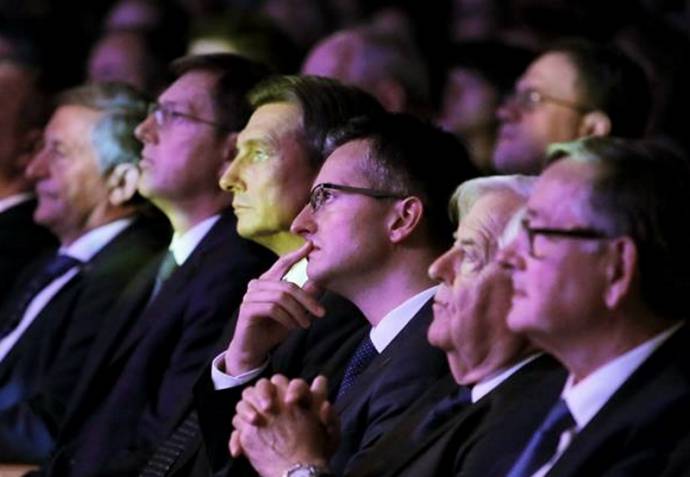Opening the proceedings, Miro Cerar, the outgoing prime minister, noted that the world had changed dramatically over the last few years, as the economic order and strategic alliances that had been known for decades were suddenly called into question, and multilateralism being severely challenged.
"All this is giving boost to growing individualism and divisions in our society. If we really care for the prospects of our countries, for the well-being of our citizens, for the future of Europe and world, we need to bring change."
Cerar said that politicians sowing fear and divisions should be confronted by continuously stressing pure facts about the reality and promoting ethical and democratic values.
A similar message was delivered by President Borut Pahor, who aired the view that Brexit demonstrated that the EU was at a standstill, which he sees not as a frozen state but as a return to national policies.
The standstill also does not mean that everyone is waiting idle. "It's obvious that those who are not in favour of the future strengthening of the EU are moving on. And those of us who are in favour of such strengthening are standing still."
He warned that the standstill in institutional, political, economic and other forms of integration was making nationalist politics stronger.
The current standstill experienced by the EU will turn into a crisis if nationalist politics begins to prevail. "For now, this is not yet the case. However, it's becoming stronger than ever. It's undergoing a surge.
"Pro-European politics, fearing for its position, is adjusting to it. It's not providing an alternative. In my opinion, this can no longer continue. Some sort of political risk must be taken. We must expose ourselves," Pahor said.
One of the biggest factors currently destabilising Europe is Brexit, but the EU's Brexit negotiator Michel Barnier was upbeat that a deal with the UK could be reached "within 6-8 weeks".
He said roughly 80% of the draft agreement currently under negotiation was already finalised, which meant the conclusion is near.
Barnier also said he had "great respect" for UK Prime Minister Theresa May and said her Brexit plan, referred to as the Chequers Plan, was a good basis for talks. "I think that Chequers is useful, because it clary defines what the issues for the UK are," he said.
Barnier also held talks with Slovenian officials, meeting Pahor, Cerar, parliamentary Speaker Dejan Židan and members of the EU affairs and foreign policy committees to brief them on the current stage of Brexit talks.
Barnier was one of the main guests at the 13th BSF, which has been criticised for failing to attract top-tier officials.
But outgoing Foreign Minister Karl Erjavec downplayed the criticism, saying debates at one of the biggest international events in the region would not be affected by the absence of most senior officials.
He explained that one of the reasons was Slovenia being in between governments. "This year we have a government 'in transition', so we were cautious when sending out invitations".
The event will wrap up on Tuesday with twenty-odd debates approaching the guiding theme of this year's event - bridging the divide - from various angles.







